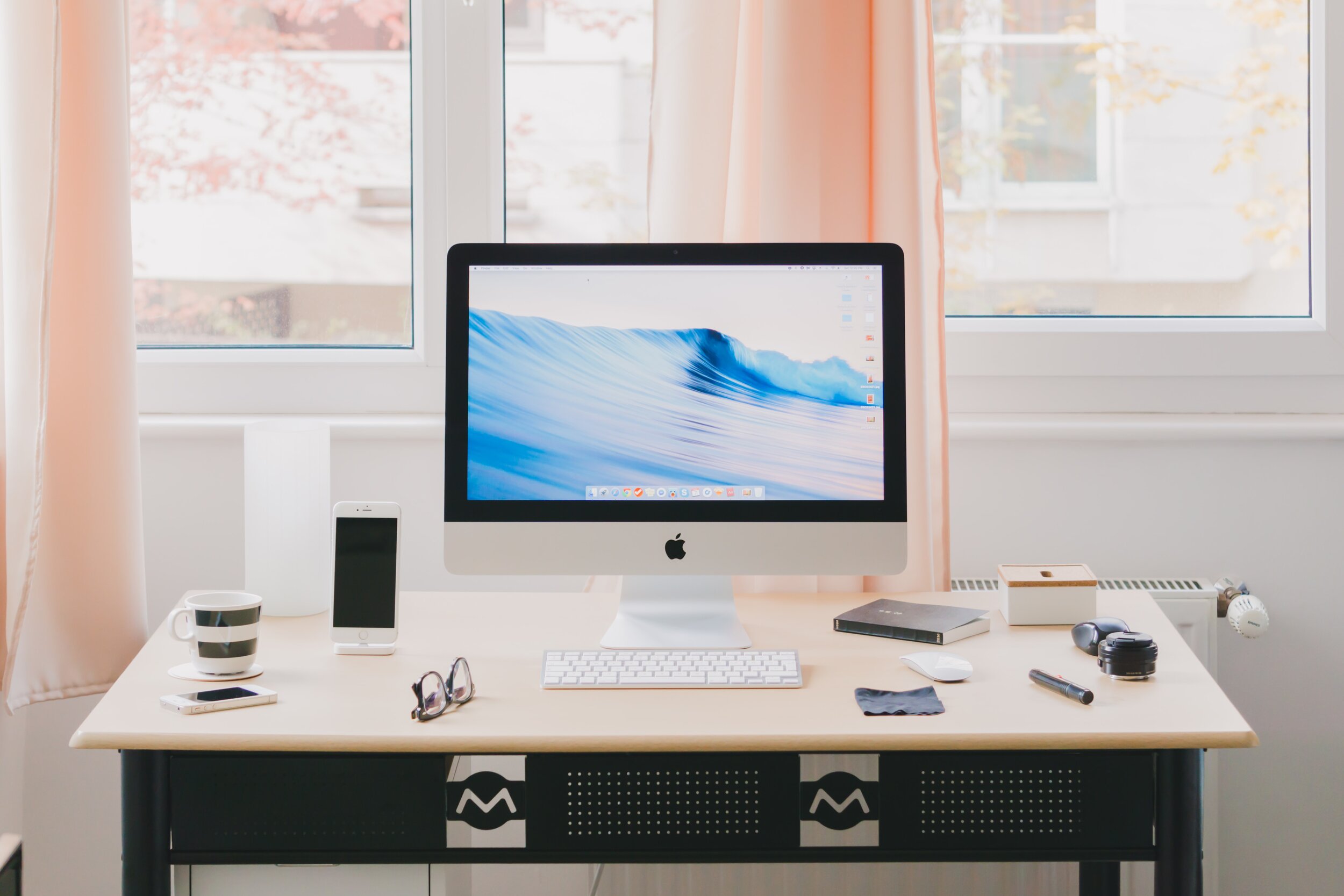Building Good Habits when Working from Home
If you are working from home as a result of the Coronavirus, whether you’re feeling excited or anxious about the prospect of spending more time at home, view this time as a unique opportunity to build good habits into your daily routine.
My husband will be working from home from today and although he has been told it will be for two weeks, we’re not entirely sure this will remain the case. The working from home phase could last weeks or months so it’s important to adopt good strategies to keep up your productivity and maintain your wellbeing during this unpredictable time. We live in a small space and although we have an office where my husband will be working, things may feel a little crowded at times, especially if our son’s school closes soon. So over the next few days, we will be implementing the follow five tips into our daily schedule to maintain our current levels of sanity!
My recommendations for building good habits whilst working at home:
Make your bed! Sound simple? Yes, but being productive in the most simple of tasks like making your bed in the morning has a significant impact on how you can start your day with a positive mindset. I believe small wins like this set you up for the big work wins of the day.
Get dressed: It can be very tempting to work from home in your pajamas (especially if you don’t have any video conference calls), but I always feel more in control and ready to tackle the unknown of the day when I’m fully dressed. I’m not saying you need to adorn yourself in your finest work attire (although my husband intends to wear a suit on some days; let’s see how long that one lasts!), but leave the PJs for evening relaxation when the work day is done. Slipping into your PJs or lounge wear after you’ve finished work clearly marks the transition between work-time and personal-time, and it’s important to keep set working hours at home. It’s all too easy to continue working into the night when you’re in your home environment so use your clothing to distinguish whether it’s work-time or personal-time.
Exercise and take ‘movement breaks’: Whether you’re a gym junkie or complete novice, assign at least 20 minutes of your day to exercise. My husband and I will be completing some HIIT exercises at the start of our day before our children wake up. Joe Wicks has an excellent YouTube Channel, which we will be using over the next few weeks. Furthermore, consider time blocking your work output and then adding in movement breaks. No one should spend the whole day in a dark room staring at a computer screen so it’s also beneficial to experiment with changing your environment for different work tasks, for example, take a call in your bedroom where it is quiet.
Get fresh air: Stepping outside for even just a quick breath of fresh air will make you feel more alive and less isolated. I think it’s important to leave your workspace and get outdoors for at least 30 minutes. If you’re someone who never leaves the office, make this a new habit that you will take back with you once you’re back in your workplace. We are all entitled to a change of scenery in our working day and this is even more important when we’re working from home. So whether it’s a break in the garden, walk around the block or to a local open space, make sure you get outdoors for a welcome change in headspace.
Avoid distractions for deep work: Computer Science Professor and best-selling author Cal Newport tells us that it takes us 20 minutes to reach our best level of focus, and to fully engage in the deep work mindset necessary for our best productivity. This means no distractions. When you’re working from home, all the comforts of your sanctuary can be a very appealing pull to your easy-to-distract brain. Try putting your phone in a different room (unless you’re expecting a very important work call) and be mindful of the notifications that keep popping up on your computer screen and devices when you’re trying to focus. Each time you stop your work flow to respond to a ping, email or message (or start up a conversation with a family member), it takes you another 20 minutes following this interruption to get back to your ‘deep work’ level. I’m not telling you to be a social recluse, but it’s important to be mindful of what these low-level distractions can do for our work output.
These are some of the things I practice when I’m working from home. Whether you’re an business owner like myself, employer or employee, please feel free to share the above advice with your crowd. Let’s use these unpredictable times as an opportunity to change some of our habits for good.
Make your bed every morning for a productive start.
Get outdoors for fresh air and clear your headspace.
Keep digital distractions from unnecessary devices, apps and alerts at a minimum.




